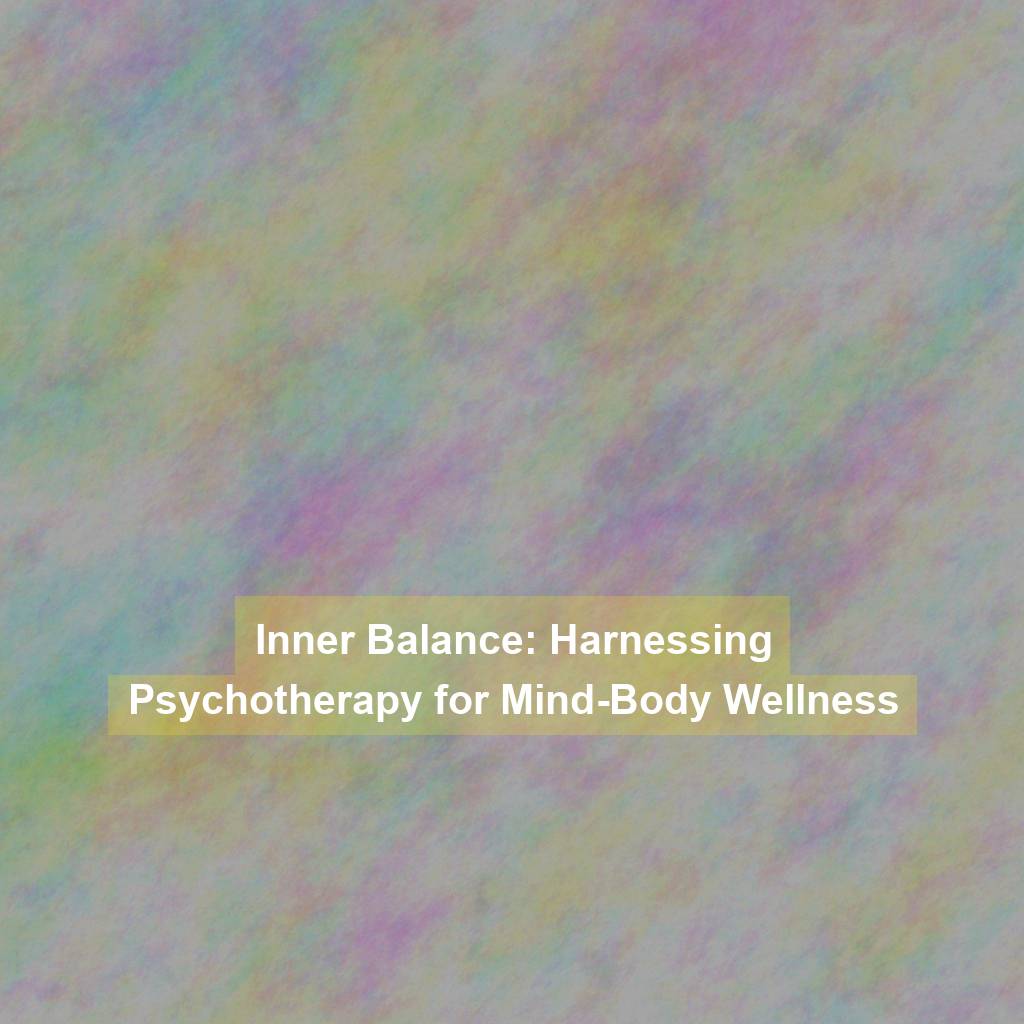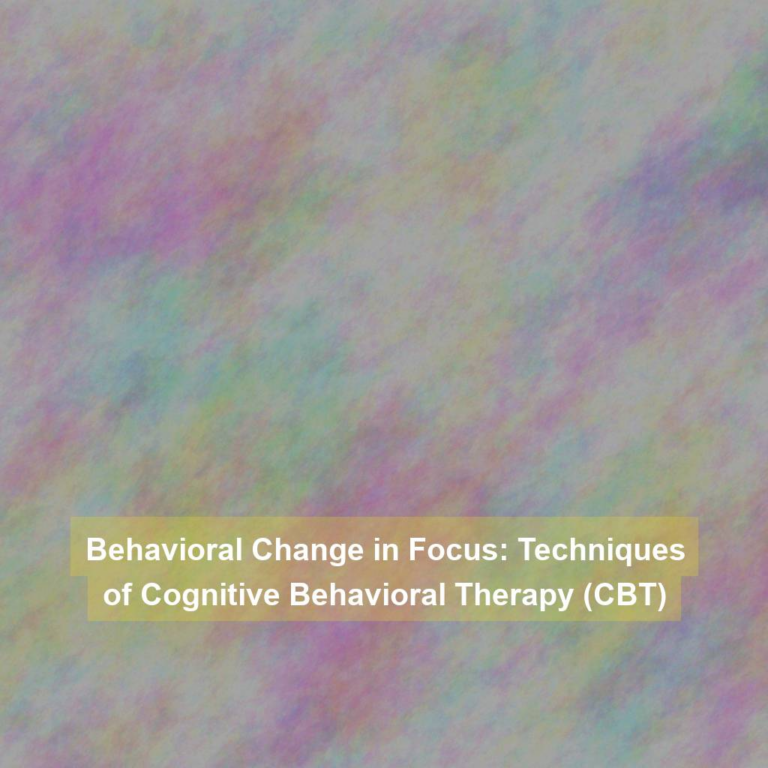Do you ever find yourself feeling physically exhausted from emotional stress, or mentally drained by physical ailments?
The intricate connection between the mind and body is a fascinating and complex phenomenon.
Harnessing the power of psychotherapy to achieve inner balance and overall wellness is an increasingly popular approach.
By exploring the ways in which psychotherapy can positively impact both your mental and physical health, you may discover a new path towards holistic well-being that you never thought possible.
The Mind-Body Connection
How does the mind influence the body’s physical health and vice versa? The mind-body connection is a powerful and intricate relationship. Your thoughts, emotions, and beliefs can directly impact your physical well-being. When you experience stress, for example, your body responds by releasing hormones like cortisol, which can affect your immune system and lead to various health issues.
On the other hand, your physical health also influences your mental state. Chronic pain or illness can take a toll on your mental health, leading to feelings of anxiety, depression, or helplessness. Understanding this connection is crucial for achieving overall wellness.
Incorporating psychotherapy into your wellness routine can be highly beneficial. Through therapy, you can address and manage stress, anxiety, and other mental health concerns, which in turn can positively impact your physical health. Techniques such as cognitive-behavioral therapy can help reframe negative thought patterns, leading to reduced stress and improved physical well-being.
Additionally, therapies like mindfulness and relaxation techniques can help calm the mind, leading to reduced muscle tension and improved sleep quality. By harnessing the mind-body connection, you can optimize your overall health and well-being.
Techniques for Stress Management
When managing stress, it’s important to incorporate techniques that promote relaxation and mental well-being. One effective technique is deep breathing exercises. By taking slow, deep breaths, you can activate the body’s relaxation response, reducing stress and promoting a sense of calm.
Another helpful practice is mindfulness meditation. This involves focusing your attention on the present moment, which can help to alleviate stress and anxiety.
Engaging in physical activity, such as yoga or tai chi, is also beneficial for managing stress. These activities not only provide physical exercise but also encourage mental relaxation and stress reduction.
Additionally, progressive muscle relaxation, where you systematically tense and then relax different muscle groups, can help release physical tension and ease stress.
Seeking social support is equally important. Talking to a friend, family member, or therapist can provide emotional support and different perspectives on the sources of stress.
Healing Trauma Through Therapy
To heal trauma through therapy, it’s essential to recognize the impact of past experiences on your mental and emotional well-being and seek professional guidance for effective recovery. Traumatic events can leave lasting imprints on your mind and body, leading to a range of symptoms such as anxiety, depression, and hypervigilance. Working with a therapist can provide a safe space for you to explore the root causes of your trauma and develop coping strategies to manage its effects.
Therapy offers various approaches to healing trauma, such as cognitive-behavioral therapy, eye movement desensitization and reprocessing (EMDR), and somatic experiencing. These modalities aim to address the psychological, emotional, and physiological impacts of trauma, allowing you to process and integrate the distressing experiences. Through therapy, you can learn to regulate your emotions, reframe negative thought patterns, and cultivate resilience.
It’s important to approach trauma therapy with patience and commitment, as healing takes time and effort. Building a trusting and collaborative relationship with your therapist is crucial for navigating the complexities of trauma recovery. By engaging in therapy, you can embark on a journey towards healing, reclaiming your sense of safety and empowerment, and restoring balance to your mind and body.
Cultivating Emotional Resilience
Cultivating emotional resilience requires practicing self-awareness and developing adaptive coping skills to navigate life’s challenges with greater ease and flexibility. It begins with acknowledging and understanding your emotions, recognizing their impact on your thoughts and behaviors. By doing so, you can effectively manage stressors and bounce back from adversity. Building emotional resilience involves fostering a positive mindset, reframing negative thoughts, and nurturing self-compassion. It’s about embracing change and uncertainty, viewing setbacks as opportunities for growth, and maintaining a sense of hope and optimism.
Furthermore, it involves cultivating healthy support systems, seeking connections with others, and being open to receiving help when needed. Developing resilience also entails honing problem-solving skills, setting realistic goals, and adapting to new circumstances. Embracing mindfulness and relaxation techniques can aid in regulating emotions and reducing the impact of stress on the mind and body. By actively engaging in these practices, you can enhance your ability to cope with life’s challenges, strengthen your emotional well-being, and foster a greater sense of inner balance and harmony.
Integrating Psychotherapy Into Daily Life
Embracing the principles of emotional resilience can be further enhanced by integrating psychotherapy into your daily life, fostering a deeper understanding of your emotions and developing effective coping strategies.
To begin integrating psychotherapy into your daily routine, consider setting aside time for self-reflection. This could involve journaling about your thoughts and feelings, or simply taking a few moments each day to check in with yourself and acknowledge your emotional state.
Additionally, incorporating mindfulness practices into your daily life can be incredibly beneficial. Whether it’s through meditation, deep breathing exercises, or simply being present in the moment, mindfulness can help you stay connected to your emotions and manage stress more effectively.
Another way to integrate psychotherapy into your daily life is by seeking out opportunities for personal growth and self-discovery. This could involve reading self-help books, listening to mental health podcasts, or engaging in activities that promote self-awareness and emotional well-being.
Furthermore, don’t hesitate to apply the coping strategies and insights gained from therapy sessions to real-life situations. By actively implementing the tools and techniques learned in therapy, you can make significant strides in managing your emotions and maintaining a balanced outlook on life.
Conclusion
So, take the time to prioritize your inner balance. Use psychotherapy to manage stress, heal from trauma, and cultivate emotional resilience.
Integrate these techniques into your daily life to experience the full benefits of mind-body wellness. You deserve to feel centered, calm, and in control.
Embrace the power of psychotherapy and watch as it transforms your life for the better.







